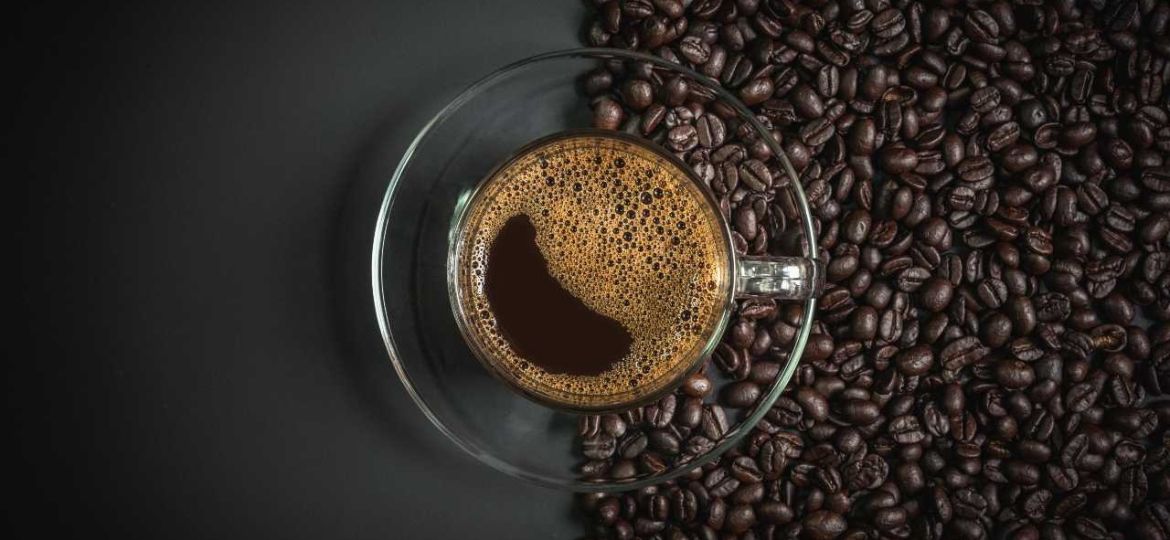
Black coffee, a staple in many morning routines, is known for its robust flavor and invigorating properties. It’s the straightforward brew of water and ground coffee beans, with no added ingredients. For those watching their calorie intake, black coffee is a great choice, as a standard 8-ounce cup contains approximately 2 calories. This minimal caloric value makes it nearly negligible in a daily diet, especially when compared to other flavored and cream-laden coffee beverages.
Key Takeaways
- Low in Calories: Black coffee is one of the lowest-calorie beverage options available, ideal for those who want to enjoy a warm cup without affecting their calorie budget.
- Watch the Additives: It’s easy to turn a low-calorie cup into a high-calorie treat. Adding sugar, milk, or cream can significantly increase the calorie content, sometimes adding hundreds of calories to your drink.
- Boosts Metabolism: Drinking black coffee may boost your metabolism, thanks to its caffeine content, which can enhance fat burning and aid in weight management.
- Variety Matters: The type of coffee bean, the roast level, and the brewing method can all influence the flavor and, potentially, the caloric content of your coffee. Lighter roasts tend to have slightly higher caffeine content than darker roasts, though the calorie difference is minimal.
Caloric Content of Black Coffee
Black coffee is renowned for its minimal caloric value, primarily because it’s brewed solely from ground coffee beans and hot water, with no additives. The natural components of coffee beans themselves contain virtually no calories. An 8-ounce cup of black coffee typically contains about 2 calories, which are mainly from a tiny amount of proteins and oils found in the coffee bean itself.
In contrast, coffee drinks like lattes, cappuccinos, and mochas include milk, sugar, syrups, or cream, which can significantly increase their calorie content. For example, a medium latte might contain around 150 calories, and the same size of a mocha can exceed 250 calories depending on the amount of chocolate and whipped cream added. This stark difference highlights how additions to coffee can turn a low-calorie drink into a high-calorie indulgence.
Health Benefits of Black Coffee
Black coffee offers more than just low calories—it’s also loaded with beneficial compounds that can improve health. Regular consumption of black coffee has been linked to enhanced metabolism. This is largely due to caffeine, which can increase metabolic rate in the short term. This makes black coffee a popular choice for those looking to manage weight or enhance fat burning.
Furthermore, coffee is a significant source of antioxidants, which protect your cells from damage by free radicals. Studies suggest that the antioxidants in coffee may have a range of health benefits, from reducing inflammation to lowering the risk of liver disease and type 2 diabetes. Caffeine, another major component of black coffee, is known for improving various aspects of brain function, including memory, mood, and general mental function. These benefits make black coffee a compelling choice not just for those looking to keep calories down, but for anyone interested in maintaining their health.
Impact of Additives on Calorie Count
The beauty of black coffee lies in its simplicity and low caloric content, but adding common extras like sugar, milk, or syrups can dramatically increase the calorie count. For instance, a single tablespoon of sugar adds about 49 calories, and a tablespoon of heavy cream can add about 52 calories. These additions can quickly transform a 2-calorie cup of black coffee into a much higher calorie beverage.
Tips for Lower-Calorie Coffee:
- Choose Low-Calorie Additives: Opt for almond milk or skim milk instead of whole milk or cream. Sweeten with low-calorie or natural sweeteners like stevia instead of sugar.
- Portion Control: Be mindful of how much you add. Even small amounts of high-calorie additives can add up.
- Flavor Naturally: Add cinnamon or vanilla extract for flavor without a significant calorie increase.
Calorie Comparison: Black Coffee vs. Other Beverages
Black coffee stands out as a low-calorie option compared to other popular coffee-based drinks. Here’s a quick look at the calorie differences:
- Latte: Typically involves espresso and steamed milk, with a medium size containing around 150 calories.
- Cappuccino: Similar to a latte but with more foam and less milk, a medium cappuccino usually has about 120 calories.
- Mocha: Combines coffee with chocolate and milk, pushing the calorie count to around 250 calories for a medium.
Impact of Brewing Methods on Calorie Content: Different brewing methods can influence the flavor and body of coffee, but they don’t significantly affect the calorie content unless additives are involved. Methods like French press, espresso, and drip coffee essentially produce calorie-free beverages unless you add milk, sugar, or cream. However, the method might influence how likely you are to add those extra calories—for example, espresso might be more commonly consumed with milk in the form of a latte or cappuccino.
Making Smart Coffee Choices for Lower Calorie Intake
When it comes to enjoying coffee without overloading on calories, the choice of beans and how you prepare your brew can make all the difference:
- Select the Right Roast: The roast level of coffee beans affects the flavor and might influence your need for additives. Light roasts have a brighter acidity and complex flavors that some may prefer without sweeteners, whereas dark roasts offer a bolder, smoother taste which might stand well on its own.
- Brewing Methods Matter: Espresso or Americano can offer a rich coffee experience with minimal calories. Using a French press or pour-over coffee maker also allows the intrinsic flavors of the coffee to shine through, potentially reducing the need for caloric additives.
Practical Tips:
- Go Herbal: Consider adding spices like cinnamon or nutmeg to enhance flavor without calories.
- Measure Additives: Always measure creamers and sweeteners instead of pouring freely to control calorie intake.
- Opt for Quality: Higher quality coffee can be enjoyable without any additives at all, due to its richer and more nuanced flavors.
FAQs
How does black coffee compare to other low-calorie drinks? Black coffee is comparable to herbal teas and flavored water in terms of calorie content, making it an excellent choice for those watching their calorie intake.
Can drinking black coffee alone lead to weight loss? While black coffee can support weight loss efforts by enhancing metabolism due to its caffeine content, it should be part of a balanced diet and healthy lifestyle for effective results.
What are the best low-calorie additives for black coffee? For those looking to keep their coffee low in calories but flavorful, consider using spices like cinnamon, unsweetened almond milk, or a drop of vanilla extract.
How many calories are in popular coffee chain beverages? Calories can vary widely in coffee chain beverages. A plain black coffee typically has less than 5 calories, whereas drinks like lattes or mochas can range from 150 to over 300 calories depending on the size and additives.
Final Thoughts
Throughout this article, we’ve explored the surprisingly low calorie count of black coffee and compared it to other popular coffee beverages that often contain much higher calorie totals due to added ingredients like milk, cream, and sugar. We’ve also touched on the health benefits of black coffee, which range from boosting metabolism to providing a significant source of antioxidants.
An 8-ounce cup of black coffee contains about 2 calories, making it an excellent choice for those monitoring their calorie intake. Adding milk, sugar, or syrup can quickly escalate the calorie count, so moderation is key.
Beyond its role in weight management, black coffee can enhance physical performance and mental clarity due to its caffeine content.
Opting for high-quality coffee beans and experimenting with different roasts and brewing methods can enhance your coffee experience without needing excessive additives.
As you continue your coffee journey, consider experimenting with black coffee and mindful additions to find a balance that suits your taste and health goals. Whether you’re a seasoned coffee enthusiast or a newcomer, exploring the nuances of coffee can enhance both your appreciation of this beloved beverage and your overall well-being.









